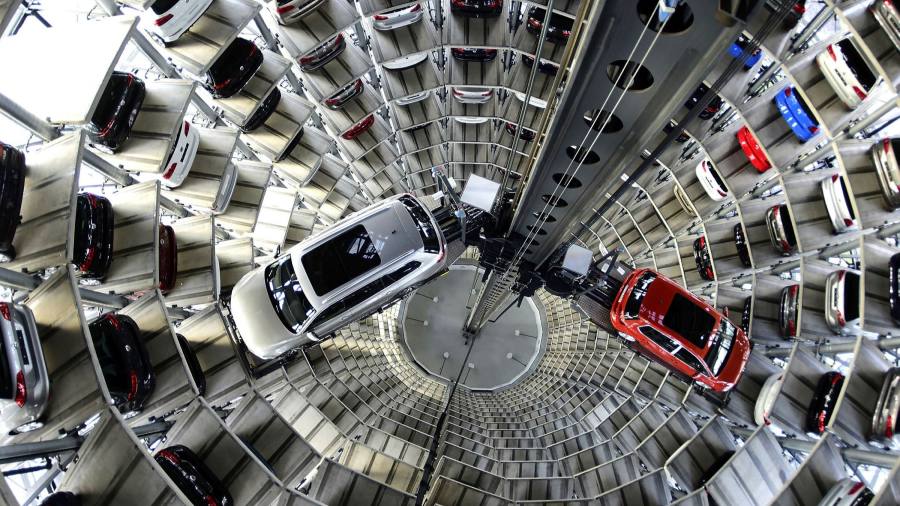[ad_1]
Few parts of the eurozone’s economy are as strong right now as German manufacturing. According to the purchasing managers’ indices, here’s how the sector is doing relative to the eurozone economy as a whole (recall that 50 is the crucial level at which the PMIs distinguish between a decline in activity from an expansion):

Boom!
So if we were going to see wages shoot up anywhere in the eurozone, it’d be here right? Wrong. Almost 4m German manufacturing workers are represented by a single union, IG Metall. But the union has been locked in a dispute since December after companies tabled a pay rise of zero per cent. Via J.P. Morgan’s Greg Fuzesi:
These talks are important not just for the German economy, but also have an important signalling value for Euro area inflation and the ECB. So, what is going on?
The prior IG Metall deal ran from January 2018 to March 2020 and was extended until December 2020, effectively as a 0% deal for 2020 due to the COVID-19 crisis. Talks about a new deal are now in the 5th round, with little progress on the question of pay. As a starting point, IG Metall’s demand had been a 4% increase over 12 months, while the employers’ federation (Gesamtmetall) offered 0%. The latter would have been the second year of wage freezes.Â
The union is, of course, expected to hold out for more than a big fat zero and has threatened to up strike action (there have already been a series of one-day walkouts). Here’s what IG Metall’s boss Jörg Hofmann had to say in this Sunday’s Bild am Sonntag (Factiva’s translation):
The crisis is over for many companies. Their capacities are almost fully utilized, and many are working extra shifts. The core industries such as vehicle construction or steel are earning a lot again . . . .
…We want to come to a conclusion by Easter. But now employers must finally submit an offer. Zero point zero is not a basis for negotiation.
The assumption is unions and companies will meet in the middle at 2 per cent, which – conveniently for the ECB – is its inflation target. However, with most parts of the economy in far worse shape than German manufacturing, it’s still not great.
There are some mitigating factors here.
While German manufacturers are the region’s star performers, they have seen costs shoot up on the back of supply shortages, higher freight charges, and soaring commodity prices. Many don’t think they’ll be able to pass them on to customers, according to an IHS Markit poll of German business confidence published earlier this week: (our emphasis)
The net balance of firms anticipating an increase in non-staff costs hit a record high (since October 2009) of +40%. Manufacturers (+54%) were more confident on this front than services firms (+32%), which partly reflected the former’s greater exposure to supply chain bottlenecks and rising commodity prices. Expectations for output prices turned positive for the first time since the start of the pandemic. However, charges (net balance: +21%) were predicted to rise more slowly than costs, leading to pressure on margins.
They might be able to raise prices if everyone else’s wages went up too, but that’s another discussion.
Meanwhile carmakers, which employ a big chunk of the IG Metall membership, have been hit by a global chip shortage that has brought production to a halt in plants the world over (which Hoffmann acknowledged to BaS).
There’s also a long-running trend of German companies doling out below-productivity pay rises – boosting their global competitiveness but leaving their workers out of pocket.
Still, IG Metall is a massive union and in the past its wage bargaining has proven a decent bellwether of where eurozone pay is heading.
So much for that inflationary spiral.
[ad_2]
Source link





